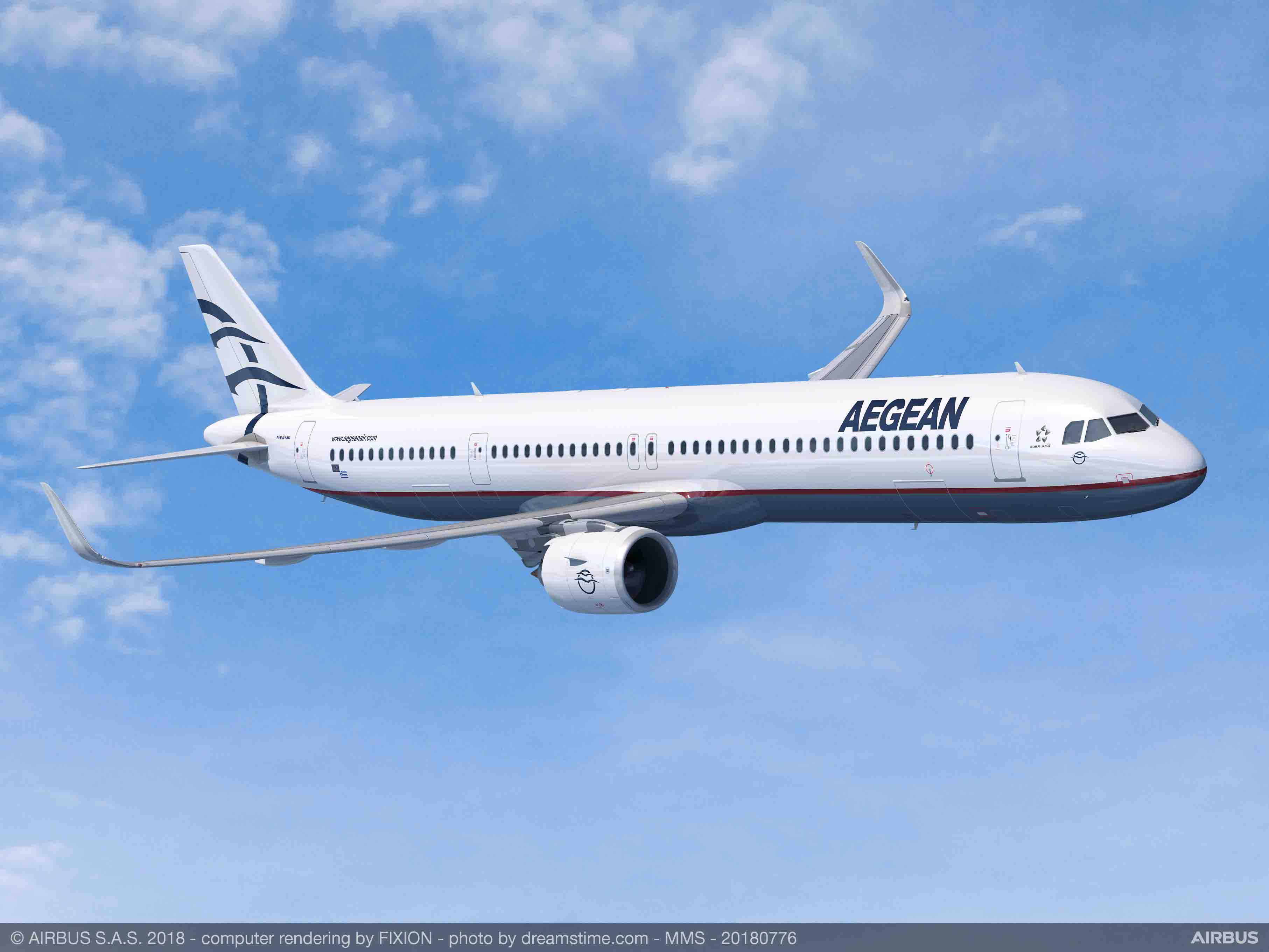Aegean Air has posted an 88% fall in revenue for the second quarter of 2020 to €40.4 million. Pre-tax losses for the quarter were €58.7 million against pretax profit of €31.5 million in the respective 2019 period.
The total number of flights operated fell by 82% in the quarter (with a reduction of 95% and 92% for the months of April and May respectively), while passenger traffic fell 92%.
Overall first half 2020 consolidated revenue fell by 64% to €187.4 million while underlying pre-tax losses were at €132.3 million. Net losses after tax stood at €158.8 million in the first half compared to losses of €13 million in the respective period last year.
Aegean stated that the results were burdened by extraordinary losses of €68.5 million from ineffective hedging, mainly due to the large portion of fuel hedging contracts for the duration of 2020 being “rendered ineffective by the significant reduction in flight activity”.
Also during the period, Aegean has adjusted its planned delivery schedule for its new A320/A321 fleet, maintaining its total commitment at 46 aircraft but deferring aircraft from 2021/2022 post 2023. The airline has already taken delivery of five new neo aircraft and expects to take delivery of four A321neos by April 2021.
“The last seven months have been a constant strife for flexibility, resilience and efforts to develop our viability forward in what is certainly the most difficult period the global airline industry has ever faced,” said Dimitris Gerogiannis, CEO of Aegean. “Due to travel restrictions the second quarter of the year was a period with essentially zero activity. Our efforts were primarily directed towards cost management as well as establishing and implementing strict protocols for the safety of our passengers and crews.”
Gerogiannis added that although at the end of June with the partial lifting of travel restrictions the airline was attempting to rebuild its activity and resume flying to 84 destinations from Athens and 52 from its regional bases, new restrictions in August due to the resurgence of the pandemic, demand fell and the airline operating capacity fell by 50%.
He says that the airline is “faced with the most challenging and least predictable winter ever” and it will further extend its “crisis endurance runway” and to develop “effective and flexible alternative scenarios for our product and network for 2021”.
Finally, Gerogiannis called on all nations to establish common protocols for pre-flight COVID testing.

